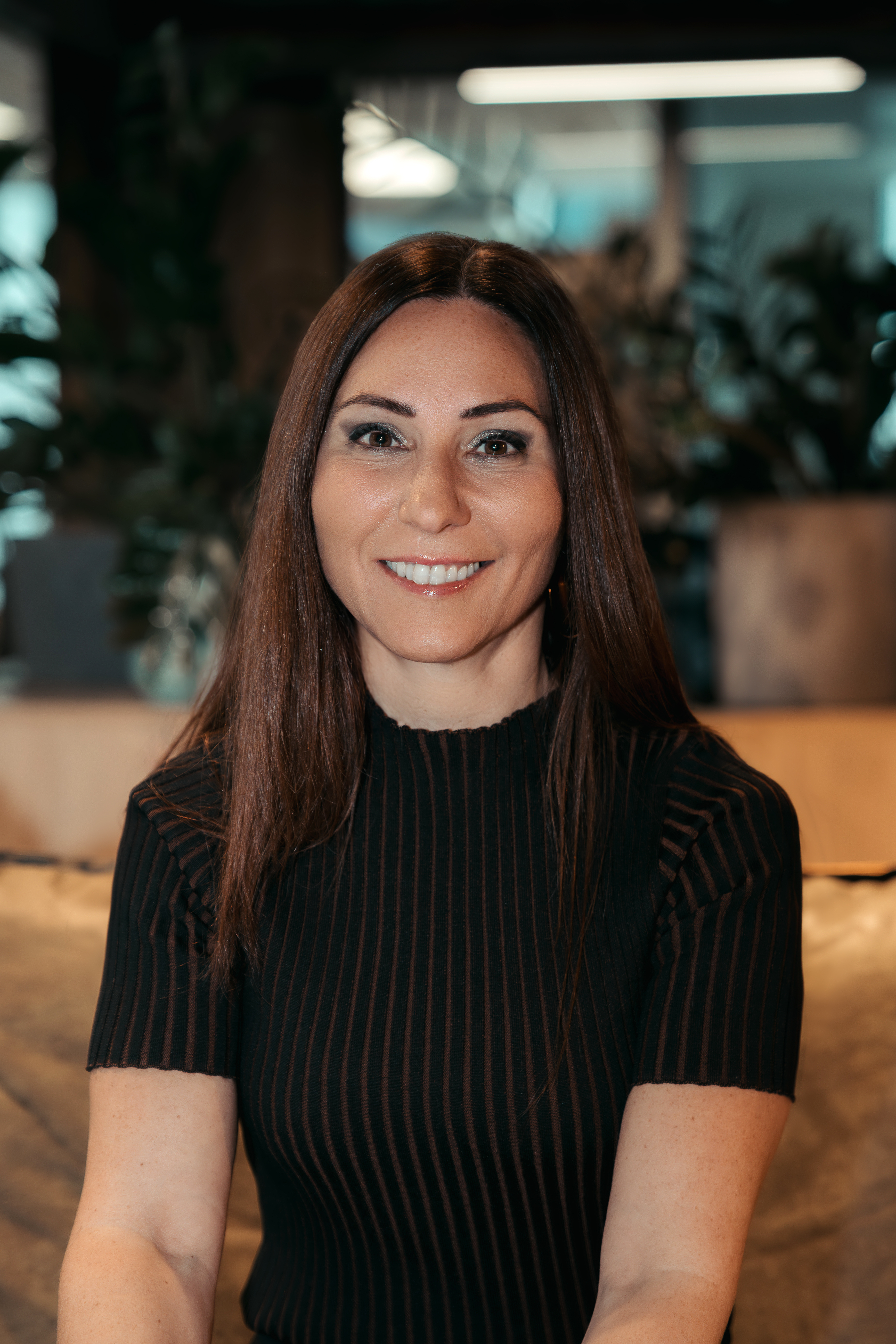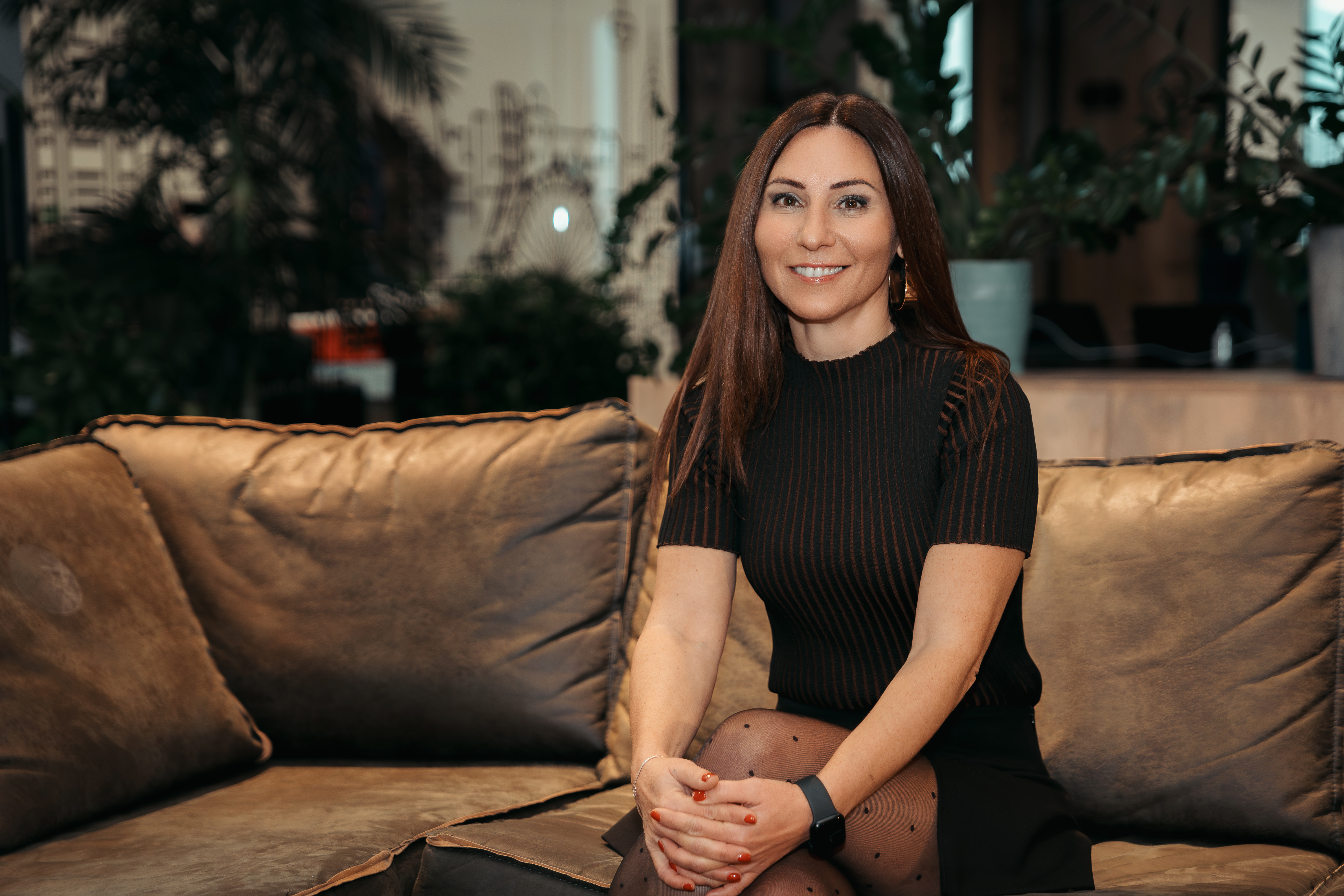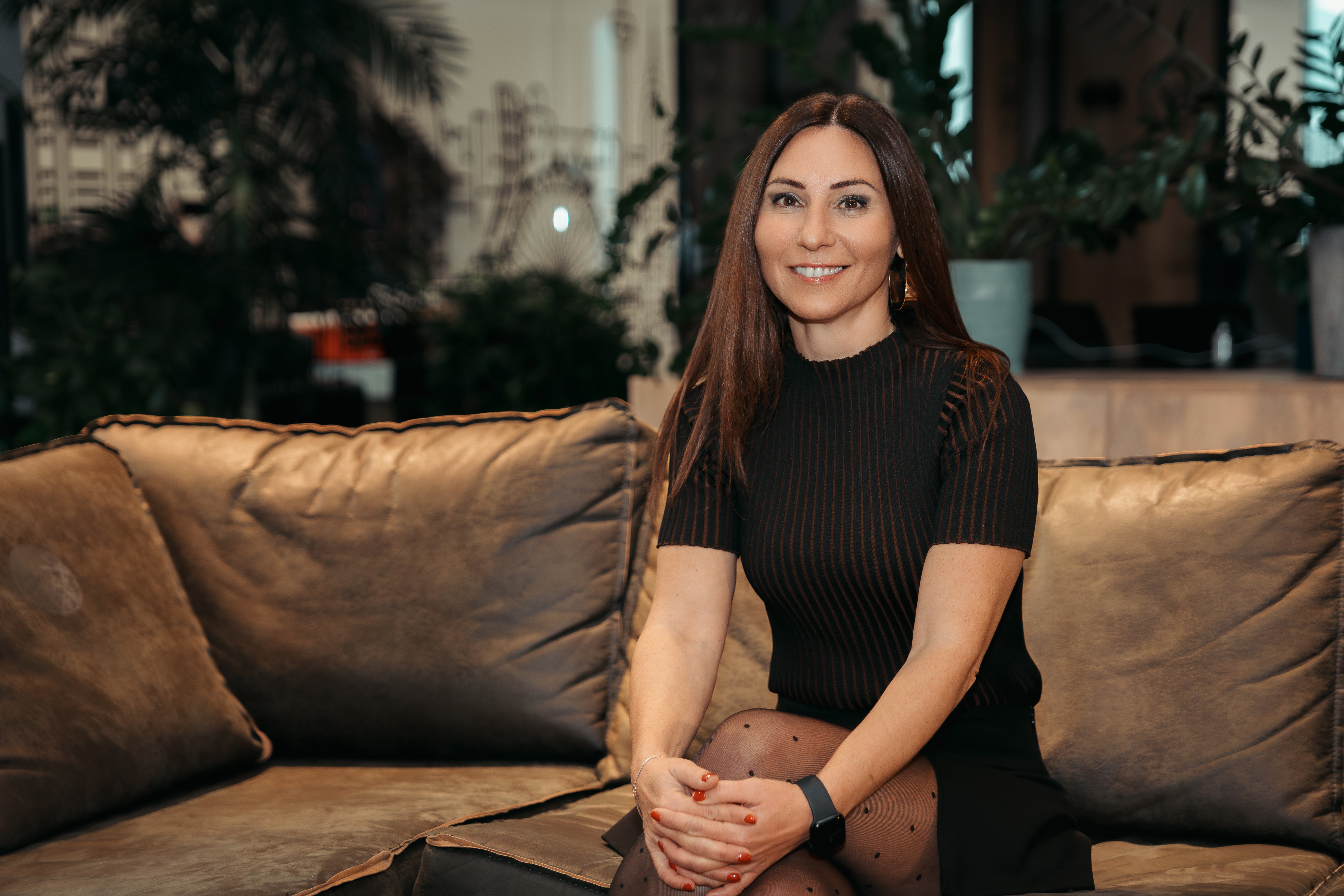She worked in senior positions in Turkish banks, then five years ago decided to radically change her life and moved to London. There she met Param, who introduced her to the Czech Republic. Nemika Menevse, Twisto's first lady, told us about her career and how to raise children.
What was your dream job when you were a child?
I think it was being a teacher, like most of the kids. And I used to play games. We had a closet and it was white. I was taking my sisters and teaching things with the closet pretending it was a board. My mom is a teacher. Maybe I was under that influence and at the school I was influenced by the teachers as well.
Do you think that something could remain?
If I know something, I love to share it. So it's not like teaching like a teacher, but sharing what I know. So it's a continuous process. I share what I know, and I learn from people what they know in the business.
Could you count how many careers have you had in your life?
I was a banker and now I'm in payments. So they are two different industries. When I was in a bank, I started as a junior and then I was promoted a couple of times. I was the corporate team manager managing one of the biggest corporate teams in a bank and then Param is my second career after banking. And then being a mom it is also a hobby and a career and business. So I am a mom and businesswoman.
What did you study at university?
International Relations.
And in these times, did you think that you will be involved in banking or finance?
At the beginning when I started international relations, I was thinking of being in foreign politics as an ambassador, I was also thinking of being a journalist. But then when I was in 3rd grade I started an internship at a bank. And I loved banking. It was very dynamic and especially the corporate banking. You meet people, you meet companies every day, you learn new things. So that internship changed a lot. Then after that I decided to go for banking.
In the same institution?
I started at another bank. But that was what gave me the idea that if I would be a banker, I would be happy. If I didn't have that internship, most probably I would go for something else. But I really loved being a banker. It's touched different industries. It was challenging. I mean, every day you need to learn new things. Corporate bankers need to have an idea about all the products – export, import, selling, credits, loans, so lots of things. Every day you can be fresh because you're going to come across new things and it is very social. You meet with people, you interact with people. I worked with the largest corporations in Turkey.
And then before 5 years you decided to start a completely new chapter of your life by moving to the UK. What was your job there?
I was more with my corporate customers doing business for them in London because it's the centre of finance. And then I came across Param. At that point, they were looking for getting the license from the FCA, the electronic money license but the payments were not my expertise. I said I could be helpful in compliance, governance and managing the banking relations and the regulator. And I started like this. Then it turned into a different, bigger story.
Did it offer you a new challenge?
I think I'm very happy when I'm learning new things and it was quite challenging for me in a country where I just relocated. Learning the regulations there, learning how to do business, getting a license from the regulator. These were all things that taught me a lot. And I learned a lot. We succeeded, we got the license, we worked on the product. Then I figured out how the big payments industry is, how dynamic it is. It is even more dynamic than corporate banking. I figured out that payments, cards, credit, this is totally a different world. And when I got into it, every day I learned new things not only about the regulation, but about the product, the consumer expectations. And London is great in terms of there are lots of fintechs, lots of new ideas, innovations.
Moving to London had to be really hard for you, you completely changed your life.
I don't know how to say it, but I really get used to new things very immediately, so I think that is part of my personality. And so when I relocated, I think the hardest part of it was not relocating to London and starting a new life there. The hardest thing was making that decision. When you look at my life, I had a very good career, I had very good conditions and all my friends were like, are you crazy? You know, leaving all these behind, starting a new life after 40 years old. But I wanted to raise my son in a different country than Turkey, so that was one of my main motivations. So it was difficult to make that decision. But when I made up my mind and when I decided to do that, then it was easy.

How many women work in finance?
Finance is a very male-dominated environment, which surprises me, even in the UK where there are a lot of fintechs. If you look at almost all countries, 50% of the workforce is female. But in the payments industry, when there are meetings, there are only a few women. Banking is similar. I think there are a lot of women, but they don't go up in their career, so I hardly meet women, really.
And do you feel alone in an office full of men?
I don't really feel alone personally. But I'm just thinking why aren't there more women. I'm really wondering about the reasons behind it.
Do you have any theories?
I think it's more related to being a mum. You need to freeze your career for a period and then when you come back your peers have raised in their career. Then you may stay below. Maybe that is why the men are going far.
How long was your maternity leave?
I went back to work when my son was a year old. It was long. In Turkey it is generally like 6 months. So I took some unpaid leave.
Did you use any institution of caring about your son? Maybe you know it, but in the Czech Republic there are no state kindergarten for children under 3 years.
I heard it and it was very surprising for me. The family support in Turkey is really good because family ties are very close. So your sisters, your mom, your mother-in-law, even though they are in different cities. But they're also good support services. For example, in our case my mom and my mom in law were helping us. For my son the idea was to be at home as long as possible and then when he was 2 years old he started going to play schools, so that he would make friends, he would learn to share. Then we increased it to three days when he was three years old and he went there fully when he was 5. And then at six, he started primary school. Before going back to work, I talked with my son's doctor, asked her about what I should do.
She was a professor and a woman and she told me it's not important how long you spend with the son but it is about quality of the time. She told me that I can be a good role model like a woman with responsibilities outside of the house. And she also advised me that I am an ambitious person and if I stay at home I am going to put all that ambition on him. So I am going to want him to be the best guy in school, to do everything the perfect way and this is going to be overwhelming for me and for him. My husband, my parents, even my parents in law, were saying that I can manage both so I went back to work.
In the Czech Republic we have a gender pay gap. In the European Union the average is 13 %, in the Czech Republic it's more than 16%, but in the financial industry it's about 40%.
I know that and it's really surprising and that was like this in the UK as well. But they're just trying to amend it. It is maybe a mindset that needs to be changed, not only the salaries. Because women work as much as men.
What do you think should change to give women a better position?
For mentally, this is going to change with the moms how we raise our kids.
So this is very important. This goes the same for business life with more women at top management. If we are not saying we should favor women, we should treat them equally and most probably this is going to change the managers changing mindsets with the management changing mindsets. And then I think this is changeable, but it can take time.
But it again starts with women, as I said, how we raise our kids in life and how we try to manage the companies we work for.
What about your work routine? I heard that you sleep only a few hours a day.
Yes, a few hours a day. It is a little bit. If you love what you do it's not like working. So for example, instead of reading a book, I prefer reading articles about payments, what is going on in the market. During the day I have lots of meetings from one meeting to another, so not much time to do the paperwork or to go over the presentations or emails. So when the day ends, then I have some spare time to go through those. And I love reading and learning about the industry, the service, what the merchants are looking for, what the peers are doing. So I enjoy doing it.
So how many hours do you sleep?
It changes but generally like 4 hours, 5 hours sometimes. I fear that if I wake up late then I will lose the whole day. I like those silent hours in the morning. Having my coffee, sometimes going to the park, having a walk. So I love waking up early.
What have you learned in Twisto?
I cannot say what I learned, but what I'm learning… I can say to be a little bit more patient. From my perspective, things need to happen now. But from the Czech perspective, it's a little bit more of planning. So that is one of the things I'm learning, just educating myself on trying to find a balance and giving people some area on this. And second thing if I meet someone I can directly jump into talking about private life, but Czechs are more distant people, so sometimes maybe they don't understand me. But this is not something that I'm going to change, to be honest. I'm just like that.


